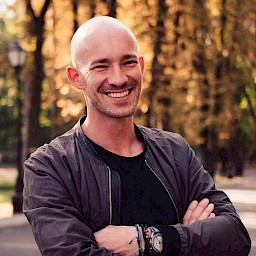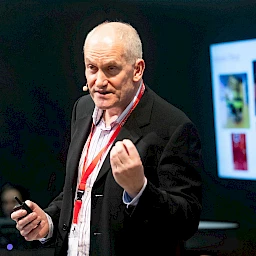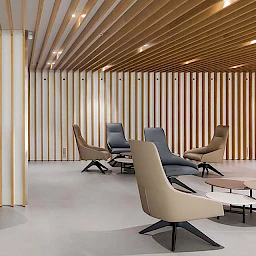In its format “5 questions to…”, IBA talked with Kira Marie Cremer, a New Work expert and the host of the podcast “New Work Now”, about companies’ challenging task of balancing the needs of different employee generations and about the question of how good generation management can lead to successful outcomes.
Today at least four generations are represented in the overall workforce: baby boomers, Gen X, Gen Y and Gen Z. It’s fairly difficult for companies to meet everyone’s needs. How can companies successfully balance the needs and requirements of all of these groups?
At the moment, public attention is very strongly focused on Generation Z. But in my opinion, all of these generations should be included in the dialogue about employee needs. In this connection I like to use the concept of generation management. It primarily refers to the management of basic beliefs, cultural imprinting, philosophies of life, mindsets and expectations. Companies should actively integrate their employees into generation management processes by regularly conducting surveys, promoting teamwork and paying attention to age diversity. Incidentally, there are far more similarities between the generations than you might think. According to a study conducted by Vanessa Jobst-Jürgens, the following aspects are equally important for all generations in the workforce. 72% of the respondents strive for innovation, 80% want more recognition and 79% would like to see offers for personal development. The older generations of workers did not value these aspects less than the younger ones, even though one might have expected these groups to have different opinions.
How should HR departments be structured in the future in order to implement generation management and age diversity?
I like to give people good examples as take-away lessons. One such example is a best practice of the German railway company Deutsche Bahn, which has implemented the principle of “multi-generationality” in its HR strategy. Deutsche Bahn puts generation management into practice throughout its workforce and offers a variety of measures in the following categories: events, continuing education, networking and development. That includes “Lunch and learn” events, management workshops, knowledge transfer training sessions and self-tests for employees, to name just a few. Through these measures, Deutsche Bahn is taking an expanded approach to diversity in line with the concept of “diversity of minds”. It believes that the different personalities, values, professional experiences, skills and perspectives of its employees are a benefit for the company. Deutsche Bahn is not the only one holding this opinion. A study conducted by the University of Lucerne shows that more than two thirds of companies consider generation management important or very important, but that they need support for their efforts to implement it. Action is needed, but in many cases the practical implementation is lacking. Here’s my tip for dealing with this situation: Companies shouldn’t be afraid of getting support from external specialists.
In a few years, the departure of older employees will further accelerate the growing shortage of specialized workers. What can companies do in order to position themselves as attractive employers for jobseekers from younger generations?
The offer of flexible working time models appeals to the young generation. Companies that take the individual needs of their employees into account when defining working times can really score points. For example, I was a “sidepreneur” myself for a long time. I spent 60% of my working time as an employee and 40% as a solo freelancer. That gave me a sense of security on the one hand, but it also left me room for free development. This did me a lot of good and suited my mindset. A second aspect is the offer of opportunities for continuing education. The Megatrend Map drawn up by the Zukunftsinstitut (Future Institute) includes lifelong learning as a subsection of New Work, and for good reason. In my opinion, employer branding is a third important point. Employers can enhance their appeal by actively using channels such as LinkedIn, encouraging their employees to write posts themselves or using brand ambassadors in a targeted way as corporate influencers.
„In my opinion, you have to give young people the opportunity to test themselves. We’re no longer living in the era when people worked at the same company for 30 years. No company should be cherishing this illusion any longer.“ Kira Marie Cremer
What role does the corporate culture play in this regard?
I believe that a corporate culture is a key element for attracting talented new people and reinforcing employees’ loyalty to the company. A corporate culture is promoted not only in communication with the outside world but also through activities inside the company. And the main way to create a corporate culture is to have people meeting in a physical space. Even though we’ve learned that many things work well remotely, recent years have shown most clearly what we’ve missed: cool team events, conversations with colleagues and a sense of community. By providing these things, a corporate culture can be a secure anchor and contribute to the employees’ satisfaction and sense of well-being.
When different generations work together, what role is played by personal meetings inside a physical space? And in your opinion, what preconditions must be met in order for this to happen?
I believe that personal meetings at the office are very important for sharing knowledge and experiences across generations. In order for this to happen, companies have to pay attention to their employees’ personal requirements and ask them specifically what kinds of space they need so that they’ll like coming to the office and show up more often. Not everyone can work in open spaces, and not everyone prefers them. That’s why there should be some diversity in the spaces on offer. And that’s not all; companies could also offer goodies to make people enthusiastic about working in the main office. For example, one of my customers offers breakfast for the entire team in the office every Friday. It’s an enjoyable event that many employees like to participate in, whether they’re young or old.
Kira Marie, thank you for this interview.







